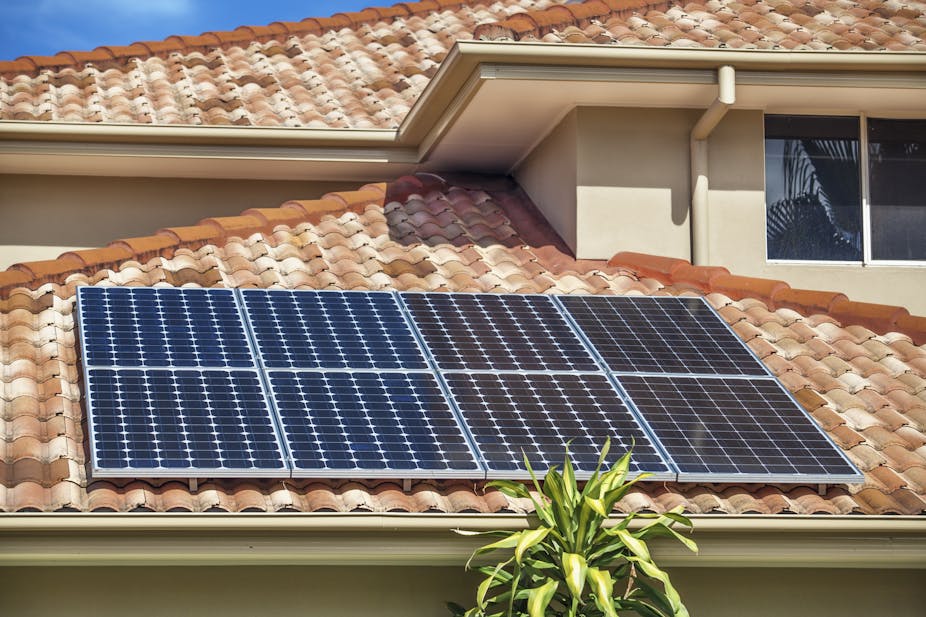Federal industry minister Ian Macfarlane has finally revealed his opening gambit on negotiations on the future of the Renewable Energy Target (RET). He and environment minister Greg Hunt have pledged to leave household solar alone but want deep cuts to targets for all other forms of renewable energy development.
This was not unexpected, and it is just a symbolic ambit claim, an opening position designed to accommodate future compromise. But it does highlight some interesting points about the politics of renewable energy.
First, the government understands that millions of votes are potentially at risk if it tries to cut incentives for home-scale rooftop solar panels. These subsidies, the small-scale component of the RET scheme, are worth around A$2,500 for a 3 kilowatt solar system, and have helped to encourage households to go solar by making panels more affordable.
Leaving the small-scale RET alone may also encourage homeowners to disengage from the debate over the large-scale RET, which deals with facilities such as wind turbines and solar farms, and the effects of competing energy choices on both industry and household power bills.
The government has to seek a balance between some disparate positions. Many Coalition MPs seem to loathe large-scale renewables, and there is a sense in some quarters that the RET is the focus of a symbolic battle with “green communists”, in which asking industry to continue subsidising renewables is seen as caving in to the climate “alarmists”.
At the same time, the powerful incumbent electricity and coal industries see the RET as cementing their feared “death spiral”. Their decades of unquestioned dominance are under challenge. But, as we have seen from recent statements by Prime Minister Tony Abbott and Treasurer Joe Hockey, these industries are very influential within the government.
Opposition support for renewables
On the other hand, Labor, the Greens and the crossbenchers are generally supportive of the RET in its present form. Apart from allowing the aluminium industry an exemption and maybe letting the 2020 target slip by a couple of years, there seems to be little interest in compromise.
There are some interesting individual threads to the issue. Independent senator Nick Xenophon seems to dislike wind energy, whereas his fellow independent Ricky Muir likes renewables: his background as a camper and former low-income rural worker means he understands renewable energy better than most politicians.
The failure of the Warburton review to make an objective economic case against maintaining (or even expanding) the RET has given these groups a powerful bargaining position. And the Clean Energy Council has sharpened its lobbying in a bid to capture public support.
Some state governments and prospective governments have suggested that any cut in the national RET could be offset by state-level commitments. South Australia has already increased its 2020 target, having met the previous target years ahead of schedule. The Australian Capital Territory has set an ambitious renewable energy goal, while Victoria’s Labor opposition (with support from the Greens) has flagged a possible renewables scheme if it wins next month’s election.
State action could be linked to rural jobs and revenue streams for struggling farmers who host renewable energy facilities: a much more attractive option than hosting coal seam gas wells.
The negotiations will be as much about managing views within the government as about finding a deal with Labor and the crossbenchers. Meanwhile, the electricity and coal industries will try to extend their age of entitlement while we confront the possibility of another record hot summer.
If some states firm up their commitments to neutralise any reduction in the RET, the government will be on a path to nowhere. If the government can maintain uncertainty, it can win through attrition, but at the risk of votes at the next election. For Labor and the crossbenchers, being seen as white knights by the public would boost their vote. I’m glad I’m not Ian Macfarlane.

